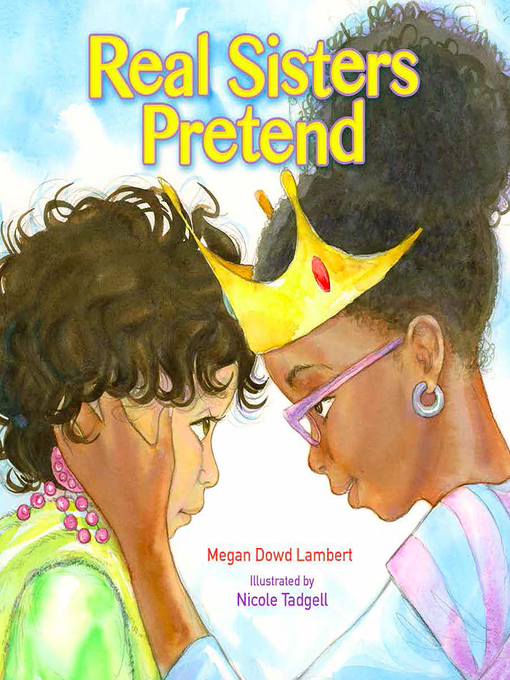Massachusetts Must Read Title: 17th Annual Mass Book Awards
*CBC/NCSS Notable Social Studies Trade Book*
*CCBC Choices Selection*
This warm, engaging story, which unfolds entirely through the conversation of two adopted sisters, was inspired by the author's own daughters, whom she overheard talking about how adoption made them "real sisters" even though they have different birth parents and do not look alike.
"I liked how they took care of one another in their pretend-play scenario about climbing a mountain," Lambert says, "and I loved how they also took care of one another's feelings as they talked about adoption. REAL SISTERS PRETEND captures these interactions perfectly and movingly.




